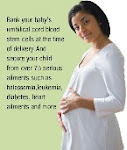Sometimes blood pressure can be raised during pregnancy. It usually begins during the last 3 months of pregnancy (third trimester). High blood pressure during pregnancy may result in high levels of protein in the urine. This condition is known as preeclampsia or pregnancy induced Hypertension (PIH). The exact cause of PIH is not clear.
Symptoms of PIH
Symptoms of PIH can be mild or severe. If your feet swell up and the water retention (edema) persists even after 8–10 h of rest or you feel that the rings and shoes are becoming tight, consult your doctor. Your doctor will be able to diagnose the seriousness of the problem depending on the symptoms.
Mild symptoms will be seen as high blood pressure, protein in the urine and Edema. If you experience more serious symptoms like dizziness, blurred vision or severe headache, inform your doctor immediately.
Regular antenatal check-ups
Mostly blood pressure may increase without any symptoms. The fact that you have high blood pressure is usually known during your routine Prenatal check up. If blood pressure record is high it is again tested after 6 h rest, and if it persists to be high other tests are done.
The Placenta is the organ that passes on nourishment to your baby. When you have PIH, enough blood does not flow to the Placenta. This leads to the baby getting less food and oxygen and can result in low birth-weight babies. Fortunately, it is possible for women with PIH to deliver healthy babies if PIH is diagnosed early and treated with regular Prenatal care.
This results in low birth-weight babies. Fortunately, it is possible for women with PIH to deliver healthy babies if PIH is diagnosed early and treated with regular Prenatal care.
You may be at a risk for PIH if:
It is your first pregnancy. PIH is reported more frequently in first pregnancies and appears to lessen in later pregnancies.
You are carrying more than one baby.
You are a teenager.
You are above 40 years of age.
PIH runs in your family.
You had high blood pressure even before getting pregnant.
Symptoms of severe PIH
Headaches
Blurred vision
Tiredness
Nausea/vomiting
Decrease in urine volume
Pain in the upper right abdomen
Shortness of breath
Cannot tolerate bright light
Symptoms of mild PIH
High blood pressure
Protein in the urine
Water retention (edema)
Can I prevent PIH?
Although there is no particular way you can prevent PIH, a few factors that can induce Hypertension should be avoided. If you are aware that you have high blood pressure before you get pregnant, inform your doctor about it. Your doctor can suggest certain steps that you can take to help you reduce the chances of complications during childbirth. Additionally, see your doctor regularly for Prenatal checks and follow your doctor’s advice.
The following are a few things you can do to avoid PIH:
Avoid salt.
Drink at least 6–8 glasses of water a day.
Avoid fried foods.
Get enough sleep and rest.
Keep your legs slightly elevated during the day. Use a pillow or mattress under your feet.
Do not consume alcohol.
Avoid caffeine drinks such as coffee, tea, cocoa and certain soft drinks.
Exercise regularly after consulting your doctor.
Treatment
The treatment for PIH is usually based on how close you are to the date of your expected delivery of your baby. Other factors that influence treatment are the severity of the condition and the impact high blood pressure is having on your baby. If you are already close to your due date of delivery and your baby has developed well, your doctor may recommend immediate delivery of the baby.
If your Hypertension is mild, and the pregnancy is not yet term, your doctor may advice you to lie on your left side to remove the weight of your baby from your main blood vessels. Additionally, you may have to increase your Prenatal doctor visits so that your blood pressure can be monitored more frequently. If you have severe hypertension, your doctor may put you on medication until he or she feels it is safe for you to deliver.
Ways you can help yourself
If you have chronic high blood pressure, follow these steps to help make your pregnancy safer and problem free:
Before pregnancy
Lose weight through a combination of diet and exercise. Your doctor will tell you about the exercises you can perform.
Take blood pressure medication as prescribed.
During pregnancy
See your doctor regularly, so that any changes in your blood pressure and/or weight can be detected as soon as they occur.
If you have kidney disease or any other risk factors, be sure to tell your doctor early in pregnancy.
If you develop any of the warning signs of preeclampsia, inform your doctor immediately.
Keep a regular check of your blood pressure and weight even at home.
Symptoms of severe PIH
Headaches
Blurred vision
Tiredness
Nausea/vomiting
Decrease in urine volume
Pain in the upper right abdomen
Shortness of breath
Cannot tolerate bright light
Symptoms of mild PIH
High blood pressure
Protein in the urine
Water retention (edema)
Know About Pregnancy
Healthy Pregnancy
Fertility basics
Planning for pregnancy
Want a smart baby?
Pregnancy health
Eating For Two
Your growing baby
Exercise in pregnancy
Benefits of exercising,Recommended exercises
Pregnancy Weight Gain
Sex During Pregnancy
Travel During Pregnancy
Stress in pregnancy
High Blood Pressure
Diabetes In Pregnancy
Labor
C-section
New mother care
Healthy Breast Feeding
Postpartum depression
Stretch marks
Diet during Breast Feeding
Birth Control choices
A Pill In Time
Miscarriage
Home/Divya Hospital
Normal Call:9445820425 and 9445842405 Divya Hospital,Medavakkam Main Rd,20,Nr.Madipakkam Koot Road-Axis Bank,Madipakkam,Chennai 600091
Dr.Jacquline Divyanandh M.B.B.S, DGO Obstetrician&Gynecologist.
Other Specialties..
Dr.Jacquline Divyanandh M.B.B.S, DGO Obstetrician&Gynecologist.
Other Specialties..
Know About Pregnancy Healthy Pregnancy Fertility basics Planning for pregnancy Want a smart baby? Pregnancy health Eating For Two Your growing baby Exercise in pregnancy Benefits of exercising,Recommended exercises Pregnancy Weight Gain Sex During Pregnancy Travel During Pregnancy Stress in pregnancy High Blood Pressure Diabetes In Pregnancy Labor C-section New mother care Healthy Breast Feeding Postpartum depression Stretch marks Diet during Breast Feeding Birth Control choices A Pill In Time Miscarriage ....Normal Call:9445820425 and 9445842405




